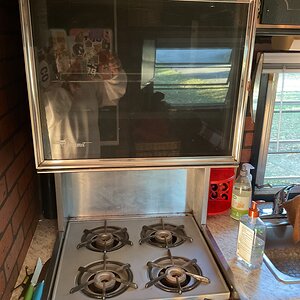No, because I know that ethanol attracts moisture. I can only imagine what it does when 1000s of gallons of warm fuel gets dumped into that cool tank buried underground. I am pretty sure I haven't seen water separator on any fuel pumps and definitely not on any E85 vehicles.Have you wondered why E-85 vehicles don't have problems?
Now to answer your silly question, I would take a wild guess and say that a car goes through a lot more gas than a small engine does first off. Secondly, an E85 engine has all kinds of sensors and electronics to compensate for sh!tty fuel. Third, the difference in the size of the fuel tank would come into play. Simply put, an ounce of water in a 1 gallon tank makes a lot more difference than 1 oz in a 15 gallon tank. Right? Fourth, the size of the engine, combustion chamber, and float bowl on a small engine are a tiny fraction of that in a vehicle, which means smaller changes make bigger differences. Right?
"References please" as to what you are trying to imply? Or better yet, prove me wrong.












